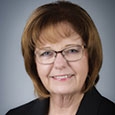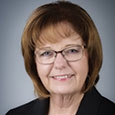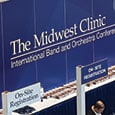We all know there are many successful, small school band programs across the country. Those programs are led by dedicated directors who provide wonderful experiences for their students and communities. Here they share ideas that have contributed to their students’ success.
Some directors often think that bigger is better. What are some advantages that you have found while teaching in a small school setting?
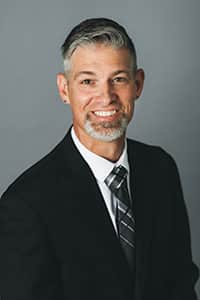 Steven Browne: I know my students well because I have taught or coached most of them before they attended high school. Having grown up and lived in this community, I also know their parents well. This community supports our kids in everything. – sports, art, music, 4H, and more. The small community to me means better communication, closer relationships, and ties to the community.
Steven Browne: I know my students well because I have taught or coached most of them before they attended high school. Having grown up and lived in this community, I also know their parents well. This community supports our kids in everything. – sports, art, music, 4H, and more. The small community to me means better communication, closer relationships, and ties to the community.
Steven Browne has taught the last 18 years of his 22-year teaching career at Nashville Community High School. During his career, he has always taught both instrumental and vocal music. He is a graduate of Southern Illinois University at Edwardsville and earned a Masters in Music Education from the University of Florida.
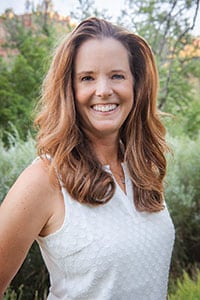 Karen Gregg: In most small school settings, the school is often the only feeder system in the community. Using this to your advantage can create a powerful connection between the school and its community because it isn’t sharing students with other schools.
Karen Gregg: In most small school settings, the school is often the only feeder system in the community. Using this to your advantage can create a powerful connection between the school and its community because it isn’t sharing students with other schools.
Local events make the program visible and build support for music. Our band regularly appears at local restaurants, ribbon-cutting ceremonies, parades, and even funerals, where our contribution is deeply valued. Additionally, these performances are easy recruitment opportunities. Band students in our town are celebrities, and students feel special as members of the only school band in town.
Karen Gregg has been the Director of Bands at Lyons Middle Senior High School (Colorado) for the past 23 years. Lyons Middle Senior has a total of 380 students (in 7 grades), and 150 of those participate in the band program. She has presented at Midwest, Colorado MEA, Ohio MEA, and Texas MEA in recent years, and is the current President of the Colorado Bandmasters Association.
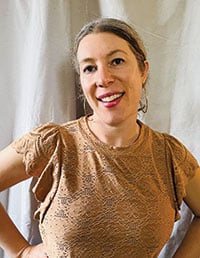 Melissa Jmaeff: Often small school music teachers teach multiple subjects at multiple levels, and I love this aspect of the job. For example, I am the only music teacher in my school district at the middle school and high school levels. I teach 6th-12th grade bands and choirs. It was a steep learning curve to become an effective choir teacher, but teaching choir has made me a better band director and vice versa.
Melissa Jmaeff: Often small school music teachers teach multiple subjects at multiple levels, and I love this aspect of the job. For example, I am the only music teacher in my school district at the middle school and high school levels. I teach 6th-12th grade bands and choirs. It was a steep learning curve to become an effective choir teacher, but teaching choir has made me a better band director and vice versa.
There is never a dull moment in the small school environment. Part of that is because you are often the person who runs nearly every aspect of your department. While this can sometimes feel overwhelming, I personally love being able to see the big picture, to be my own feeder, and to make decisions that I feel are in the best interest of my students – students who I have typically gotten to know over a long period of time.
I feel that students in small programs often have the opportunity to have a great deal of personal responsibility when it comes to their ensembles. After all, students who play one or two per part have nowhere to hide. I have found this both challenging for students and incredibly rewarding. When students overcome feelings of anxiety by developing musical skill and and trust with their peers, they often wind up better, more confident players and musicians. This level of personal responsibility is unique to small school programs and is a part of the job that I really appreciate.
Melissa Jmaeff has taught music in small public schools in Douglas County, Oregon, since 2006. She currently teaches 6th-12th grade bands and choirs for the Sutherlin School District which has about 1,300 students in grades K-12. In addition to her duties as a public school music teacher, she is also the chair of her local Oregon Music Education Association’s district and is the OMEA Small Schools Advocacy Chair. When she is not teaching, Melissa is a performing musician, having self-produced four albums of original Americana music.
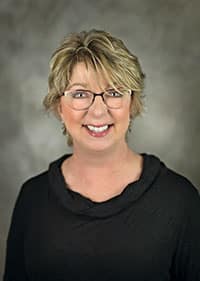 Cindy Swan-Eagan: For me, the autonomy in being the only director was such a blessing. While it is also limiting, because we are only one person, there is a powerful feeling in creating and implementing the vision for the program by yourself. I could constantly have student growth at the forefront. If I needed to shift gears and tweak some aspect of the program, it was easy. Plus, constant introspection and evaluation meant that I could shift away from doing things that did not work for my students without asking for permission.
Cindy Swan-Eagan: For me, the autonomy in being the only director was such a blessing. While it is also limiting, because we are only one person, there is a powerful feeling in creating and implementing the vision for the program by yourself. I could constantly have student growth at the forefront. If I needed to shift gears and tweak some aspect of the program, it was easy. Plus, constant introspection and evaluation meant that I could shift away from doing things that did not work for my students without asking for permission.
Cindy Swan Eagan taught for 36 years, all of it in small schools, including 34 years teaching 5th-12th grade band in Manistee, Michigan. She is now retired.
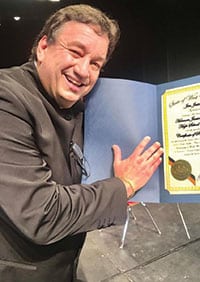 Dr. J.R. Carlisle: I particularly enjoy developing great relationships with the students, staff, and community. When the staff feels invested in the program, they will do more to help foster its development. Teaching 7th and 8th grade general music allows a good connection with every student in the building and the opportunity to recruit them for band. Even if these students do not join band, because of my relationship with them, they are more supportive to the band than any student body I have seen.
Dr. J.R. Carlisle: I particularly enjoy developing great relationships with the students, staff, and community. When the staff feels invested in the program, they will do more to help foster its development. Teaching 7th and 8th grade general music allows a good connection with every student in the building and the opportunity to recruit them for band. Even if these students do not join band, because of my relationship with them, they are more supportive to the band than any student body I have seen.
Dr. John R. Carlisle is the Principal and former Director of Bands, at Hannan Junior Senior High School in Ashton, West Virginia, and owner of Carlisle Educational Services. He has 37 years of experience as a teacher, principal, and educational consultant.
Thinking outside the box is essential when leading smaller programs. What advice do you have for other directors?
Steven Browne: Know your core values and stay true to those. Past that, be willing to change, evolve, and sometimes mutate. Kids like variety. It creates excitement and forms bonds.
Karen Gregg: Small school directors are usually stretched thin from teaching a wide variety of music classes. Finding a niche that reflects what is important to the school and community-at-large is key to making this manageable. For example, our community is thrilled that we do parades and pep band, so we don’t do a formal marching show. Our musicals have pre-recorded background music rather than a pit orchestra with tremendous success. While these might be seen as concessions to larger programs, these decisions allow me and our choir director to focus on the elements that matter the most to our programs. We also try to do the same fundraiser every year (holiday wreaths and poinsettias) so that the community knows that they can depend on us yearly for the same products.
Melissa Jmaeff: Do what is in the best interest of your students. Many of us came up in programs that viewed contests, marching programs, and high stakes performances as the gold standard of achievement. Teaching in small schools requires a re-examination of those standards. While it may feel counterintuitive, festivals may not be the best venue for a band with seven players. Perhaps writing or arranging their own song to perform for parents at an informal event would be a better use of student time and energy. Learning how to teach to the students in your room and not to some nebulous set of standards designed with large programs in mind, is our most important task as music educators. Uplifting and shining a light on each student on their terms is our job. We do it with creativity, a willingness to take risks, and heart. Remake the standards, and redefine success!
Cindy Swan-Eagen: Do not feel the need to mold your program to match everyone else’s. Your students and community are unique – the program can be just as unique. Keeping student musical growth as the focus and not following the crowd means that you can create a program that fits your students and your community. Finding creative solutions to problems helps to ensure your program can thrive and strengthens the perception that you are a team player. However, the focus of every creative solution must be the students, never yourself.
Dr. J.R. Carlisle: A big part of your job, especially in a small school, is to educate the community about your program and music as much as you do your students. Never complain that the community does not care. Talk to them and sell your program. If they see you doing great things for kids, they will care.
How have you addressed class scheduling issues and sharing students with other activities?
Steven Browne: Build relationships with the people you work with. They are colleagues not enemies. If you create positive relationships with other professionals in your building, they will also be willing to share. This is a two-way road and requires compromise. This also applies to the coaches who work with your students. Some other suggestions include:
• Never schedule anything without consulting the master calendar and schedule first.
• Make sure guidance counselors know you and your program.
• Volunteer for other programs, classes, offices, and tournaments in your building. If you help others, they will likely help you.
• Keep parents informed. We have better and easier ways to communicate with parents than ever before. Utilize everything.
Karen Gregg: I have worked hard to establish a positive rapport with my colleagues at school. Like other small schools, we have many singleton classes (AP Spanish, choir, etc.) that create scheduling nightmares when scheduled opposite band. However, because I work on building good relationships with the other teachers, they are more willing to share students. It’s not uncommon for me to share jazz band students with an AP class at the same time because those teachers know that they are valued and respected by me and the band students.
Melissa Jmaeff: It is important to see the big picture. Small school kids are involved in a lot of different activities, which is a great thing. I love having well-rounded and involved students. I have always found it important to avoid scheduling concerts on game days or other important dates for students involved in numerous activities and extra/co-curriculars. I don’t want students to choose between activities. Because I am conscientious of other activities, the coaches and advisors tend to be more aware of the music program, too.
With class schedules, I communicate with the school counselor to ensure that students have the best chance of taking the music classes that they want. If I don’t get every music kid in the class that they want, I remember that I teach whoever walks in my door. We make music with who is there and hope that the Algebra class gets moved next semester.
Cindy Swan-Eagen: I never asked a student to choose. We worked with the counseling staff to ensure that students could take band for four full years during high school, and most did just that. In addition, when students needed to take tests in other classes, I worked to be flexible. When students had sports meets or games that conflicted with band events, I found ways to share the students, and it often worked well. Concerts were scheduled a year in advance to avoid those kinds of conflicts.
Often, private lesson teachers are not available to students in small programs. Have you found any creative ways to help students develop musically outside of the traditional band class?
Steven Browne: I have a private lesson/mentor program that uses former students to teach lessons during the summer. During the past four summers up to seven former students studying music in college have taught lessons. This isn’t possible during the school year because Nashville is not close to a university.
I have created multiple videos and folders of links to trusted YouTube videos for each instrument, and have a developing curriculum of solos used for solo and ensemble contests for each instrument. These folders include friends and former students playing solos and talking about the challenges of the solo. I also have a free website called DrumDog32.com equipped with short drum set videos I have recorded that takes student drummers through jazz band songs their directors choose.
Karen Gregg: Because we are relatively close to a university, I recruit music education students to help whenever possible. I also rely heavily on peer tutoring. Working in a 6-12 school, I have created opportunities for older students to mentor younger musicians. Because of healthy relationships with colleagues, I often can ask for high school band students to visit my middle school classes and assist with beginners. This works well for both 1:1 and section work. The trick is to be precise with mentors about the educational goals and how to achieve them.
Melissa Jmaeff: In Oregon, solo and ensemble events happen in the spring. Every year I have about 25 students who participate. These students tend to be leaders in their ensembles. Each student who participates in solo and ensemble is given music to learn and is scheduled for a weekly 20 to 30-minute lesson after school with me during the spring. While this takes dedication from both me and the students, they make wonderful progress on their solo pieces as well as their chops. They then bring this knowledge back to the band and choir rooms and share it with the other kids. Solo and ensemble season tends to be a shot in the arm for my program.
Bringing in guest directors or musicians to have clinics for students is also incredibly helpful. Finally, getting as many students as possible into regional honor bands, All State, and other musical activities outside of school increases the knowledge of all students because again they come back and demonstrate what they’ve learned.
Cindy Swan-Eagen: We developed a band buddy program with older students helping younger students. This worked really well, and often, long-term friendships developed. We held sectionals led by the oldest and most proficient student, which encouraged leadership and skill building. I offered lunch time and before and after school mini-lessons for students, especially for those attending solo and ensemble (we often had up to 60 attending) and auditioning for All-State. I encouraged student participation in solo and ensemble as a priority, and as a way of having students get valuable feedback from an outside source. I developed a robust chamber music program at the high school level, often having 5 or 6 large chamber groups and several quartets or quintets yearly. These helped to develop soloistic playing in participants.
Dr. J.R. Carlisle: I spend many hours after school working with students and have also asked retired colleagues to come in and help with new students. As I developed students from their formative years to juniors and seniors, I spent considerable time developing leadership skills for when they got older. Now they serve as great mentors for younger students.
Building support for any size program is important. What have you done to promote the students and the program?
Steven Browne: We support others. When asked to play or sing to play for others, we try to do it. This creates a hectic schedule but also strengthens the relationship with our community. We have also run an annual haunted wood in a wooded acre on our campus. Hundreds of community members go through it over two days. It is run by my music honor society and has been a 10-year tradition.
Let students help design your program. When something is a success, give them credit because they earned it. I put pictures of my students’ success in the local paper and on social media. We all know we work with the best students in the school. I want to make sure everyone else knows, too.
Karen Gregg: Being visible in a small community is absolutely key to a program success. We use social media to promote our band and make sure that we advertise and celebrate all of our events. Because we aren’t competing with other local bands, we get wonderful support from local residents who aren’t necessarily affiliated with the band or school but who love supporting live music.
One really important aspect of this is longevity. It’s difficult to drum up support for a program if directors only stay for a couple of years. For the first 15 years of my career, I didn’t live in the same community where I taught, but because I was there for so long, I established a solid program that became beloved and respected. After more than two decades, I don’t have to work that hard to recruit for the program because the band’s reputation speaks for itself. Additionally, I’ve now crossed over multiple generations and former students of the program want to see their own children join.
Melissa Jmaeff: Our band program has built support within the school and community by taking part in events outside of the band room. We typically play at home football games, the annual FFA banquet, the annual veteran’s assembly, and high school graduation. We also play at various elementary school assemblies. Because we support our community, they reciprocate by supporting us, which lifts up everyone.
A number of my band and choir students have earned spots in Oregon All State ensembles as well in community ensembles and state solo and ensemble contests. These student achievements are a source of pride for our community so folks love to attend school concerts to support all of our music students.
Cindy Swan-Eagen: I created a Patron of Instrumental Music program so parents and businesses could donate to the program. These patrons were listed in every program, and I verbally recognized them at concerts. Parades are huge in our town, so I made sure our group looked and sounded good for them. We always played patriotic music for parades. (I made the mistake early on of playing pop tunes in the parades, which was not well received. We changed.) We played the Armed Forces Medley once a year at concerts and recognized active and retired military. The best thing I did was to write press releases for the local paper, along with photographs showing kids. I had an English teacher friend look them over to make sure they were well written. Soon I was known at our local paper for writing articles that did not need editing. They loved that and often featured our students on the front page.
Dr. J.R. Carlisle: As I mentioned earlier, community connection is crucial. I still get our name in the newspaper as much as I can. I also work social media hard. Money and instruments have been donated from around the country without me asking for a dime.
What other thoughts and words of wisdom might inspire and help directors in similar size schools?
Karen Gregg: Small school programs are so often seen as stepping stones to bigger and better programs. However, there are wonderful and powerful benefits to establishing strong programs and traditions in smaller schools/communities. Many times, you can have more autonomy and influence in small programs than in the larger school programs. The first few years can be tough in any program but the rewards are so worth it, and the impact on students is far-reaching in these unique small communities.
Melissa Jmaeff: Often in small schools, our classes are the only opportunity for students to experience a guided journey through music and self-expression. Therefore, our jobs are vital to the health and vibrancy of our schools and communities. Our jobs can be challenging. Often our needs go unmet in our school communities, and our stories go untold within the context of our profession. However, what we do matters deeply to those we are teaching so it’s vital to put our students at the heart of every decision that we make. What we do takes creativity and courage. There is no road map for these jobs, and that’s part of the fun. Some of our profession’s greatest teachers are teaching in small schools, dreaming up innovative new ways to teach music to students, and having a blast while doing it. I say, keep going. I’m proud to call myself a small school music teacher alongside all of you!
Cindy Swan-Eagen: Having the autonomy created by a small school, one-person program is a wonderful thing. Know that you are not alone, and that there are resources and people who would love to help you.
Dr. J.R. Carlisle: Never accept no for an answer. Go to your administrator with solutions and not problems. Never judge a book by its cover. In other words, do not look at a kid and think they could not be an asset to the band. Always be selling and recruiting. Remember, not every kid is going to be a professional player or super serious about music. This does not make them a bad student, and you still should hold them to a standard.
Never count a kid out. Just because they leave the program, it does not change how well you treat them. You never know who they are talking to or if they will come back. For example, I am starting my 38th year in education. Three years back, I kicked two kids out of elementary beginning band for the first time in my career. Now they both are rising 9th graders, who rejoined in middle school and are becoming strong leaders in the program.
